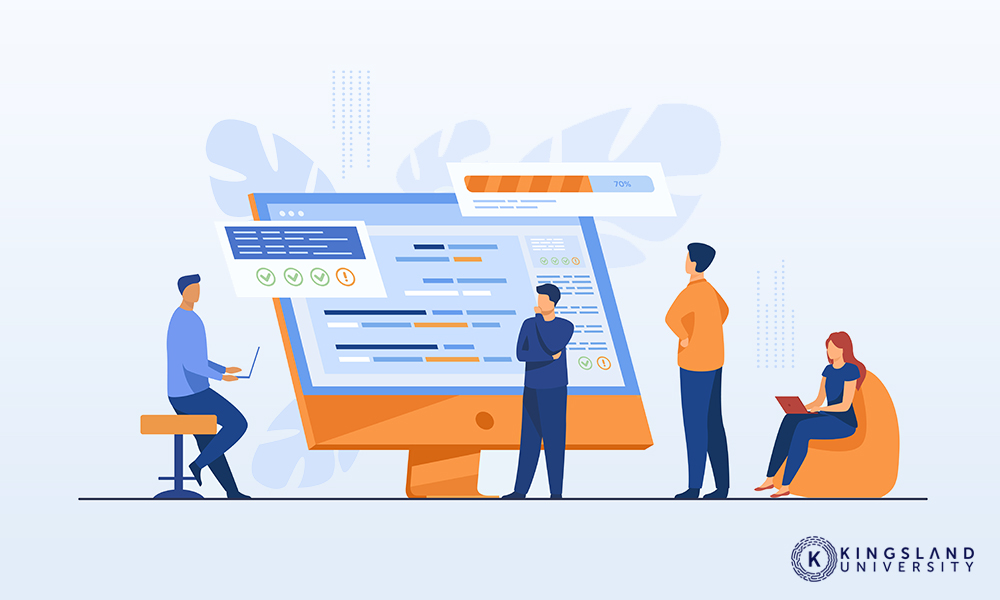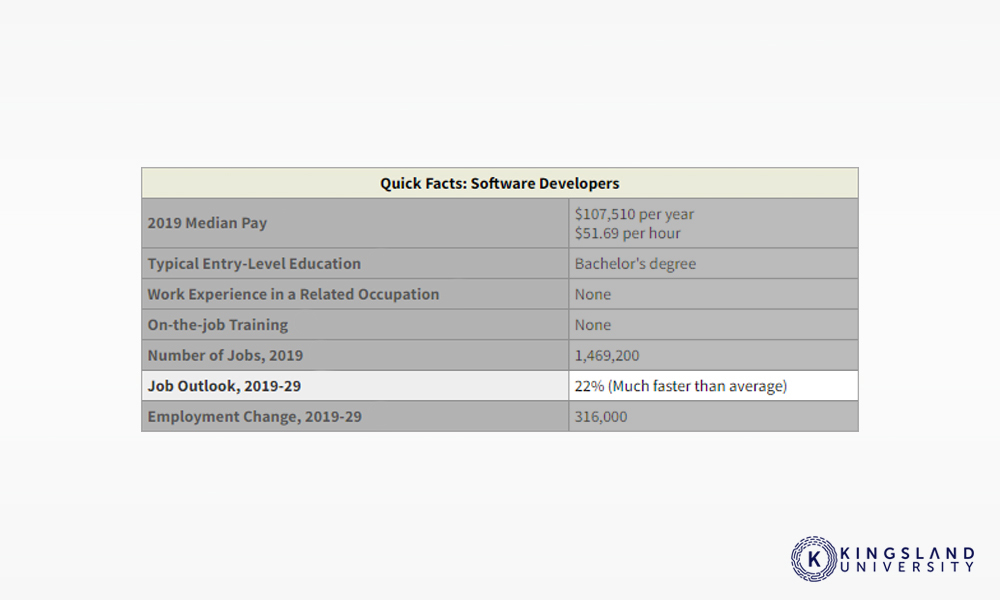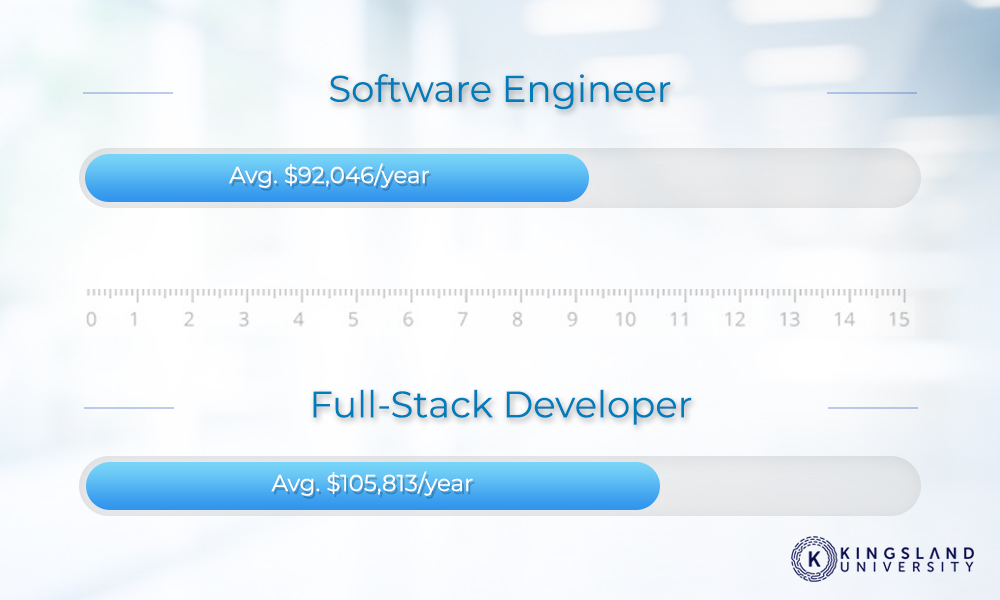
The professional technology institution is one that has been growing larger and larger for the last several decades and, if you are here, you are probably thinking “I want to be a part of it.” But you probably have a few questions regarding the nature of your skillset and the requirements to become a full-stack developer or software engineer or if there is even a difference between the two. Well with the following article, we hope to answer the questions you may have and guide you in the decision between the two positions.
Full-Stack Developer vs. Software Engineer
The first and arguably most important, question to answer is “what’s the difference?”
Software engineering is the development and creation of individual software applications. The software engineer is the person responsible and is responsible for a single project at a time. The software engineer’s responsibilities are more mission-oriented toward the completion of native applications, applications that are downloaded to a device and can only be used from that device.

A full-stack developer is an individual that handles a more comprehensive list of responsibilities. Needing to be able to regulate and manage entire databases, client lists, and programs needed to fully develop web pages and applications. A full-stack developer is more of an overseer with more responsibility and additional skills than a software engineer might ordinarily have.
The Skillset
Despite being a part of the same industry, software engineers and full-stack developers have very distinct skill requirements that differentiate one from the other. Some skills are more crucial than others based on the specific position.
- Coding: One of the skills shared between the two, a software engineer must have a working knowledge of programming and coding languages such as Java or C++.
- Object-Oriented Design (OOD): A software engineer’s understanding of OOD to resolve programming errors by adjusting how different lines of code in the application interact is a vital part of the position.
- Debugging: A software engineer is going to run into bugs in their program. It is an inescapable reality. So, the ability to go back into the code and resolve the issues by adjusting the code is equally as important to success.
- Communication: More of a “soft skill” for software engineers, many will be involved in development teams, working on specific aspects of the program. Therefore, an engineer needs to be able to successfully communicate concerns, suggestions, or inquiries to their teammates to ensure cohesive development.

- Coding: Like software engineers, full-stack developers require an extensive understanding of programming and coding languages. However, a full-stack developer should be fluent in more advanced languages than a programming engineer might.
- Front-End Development: A full-stack developer, being more of an advanced and all-encompassing role, must be able to handle front-end development tasks such as designing the user interface and factoring in the perspective of the user.
- Core Application Development: A full-stack developer’s skill in programming means they must be able to manage how the app receives and distributes information to ensure the application’s core functionality.
- Back-End Development: A full-stack developer’s responsibilities do not end when the application is deployed. Rather, the developer is also responsible for dealing with back-end support of the application. They must be able to adjust the software structure and handle the data stored in the database while maintaining security.
The Learning Curve
As with anything, no one can just up and decide to be a full-stack developer or software engineer. There is a rather large amount of learning to be done to ensure not just success, but even basic comprehension of the tasks that require completing.
- Bachelor’s Degree: A prospective software engineer is generally expected to have a bachelor’s degree in computer science. While a firm will hire an engineer without a bachelor’s once in a blue moon, having one causes your odds to be hired to skyrocket.
- A Master’s/Doctoral Degree: While the requirements on degrees are generally lax for a software engineer, better positions for software engineers may look for those who went above and beyond with education and may require a post-graduate degree to be considered.
- Experience: Almost every job is going to require a modicum of prior experience for a prospective hire to be considered. For the role of a software engineer, many firms look for a range of 1 to 5 years of prior professional experience, with a mean of at least 3 years for a candidate to be considered.
A prospective software engineer would be hard-pressed to find a professional university that does not offer a computer science program at both the undergraduate and graduate levels. Universities such as the University of Nevada, Las Vegas (UNLV), Stanford University, Carnegie Mellon University, and countless other universities offer the courses necessary to earn your computer science degree.
Full-Stack Developer:
- Degree: Much like a software engineer, a successful full-stack engineer is more likely to have a bachelor’s in computer science. And, like a software engineer, will see further success by pursuing a graduate degree as well.
- Experience: A full-stack developer is no exception to the experience requirements that any job will likely require. Depending on the company, a full-stack developer candidate could be expected to have a minimum of a couple to several years of professional experience to be considered for a position.

One major difference between a full-stack developer and a software engineer’s academic requirements is that a full-stack developer’s knowledge is something that continues to grow and is not set-in-stone. It is not uncommon for full-stack developers to continue their education by enrolling in supplementary programs that educate them on specialized computer and management skills. Such a program can even be found on our website for a fully remote learning experience.
The Future
One major concern for every professional is the stability and growth of their career. This is fortunate for those looking to enter the profession of computer science since the development of technology has made developers and programmers a growing commodity.
Software engineers and full-stack developers are both considered members of the software developer category since both occupations dedicate themselves to the creation and development of software. Which makes it fortunate that the growth rate of their careers is one of the most stable and rapidly growing industries in the country.
According to the U.S. Bureau of Labor Statistics, the current estimated growth rate for software developers between the years 2019 to 2029 is 22%. A 22% growth rate is much faster than the average professional growth rates in the country, cementing software developers as a staple career for at least the next 20 years.

As for what is driving this rate of demand and growth rate, that can be broken down into a series of details about the industry in which software developers thrive.
- Competitive Innovation: Software development is a business. And in the United States, business is competitive. As a result, firms in the industry are constantly seeking individuals to help produce new, innovative software before their competitors do to maintain their edge.
- Life Span: The common program user sees code as an absolute, hard number with no variation. However, program code has a life span due to constant updates and structural changes to elevate code to function on newer platforms. In many cases, antiquated code is discarded entirely and replaced with a brand-new version built from the ground up with modern tools.
- Technological Growth: As technology continues to advance, newer and more intensive versions of existing programs or even new programs entirely must be developed to maintain a firm’s relevance. This need for constant updates to match new hardware causes a significant hike in demand.
- Complexity: While the tools at our disposal make the development of code simpler than in days past, the sheer complexity of contemporary programs requires multiple eyes on a single project to ensure a minimum of errors.
In addition to the demand and growth for software developers, full-stack developers enjoy an additional spike in growth. Full-stack developers are, by definition, a type of web developer and designer. Therefore, they are given the added luxury of additional job security.
The U.S. Bureau of Labor Statistics projects the growth rate for web developers between 2019 and 2029 to be 8% which, like the 22% enjoyed by software developers, is much faster than the national average. A rate that will continue to grow as more professional institutions recognized the value of full-stack development.
The Risk
With the growth projection for software development set to increase in the next two decades, job security for both software engineers and full-stack developers is in a better position than in many other industries. However, they are not without their risks.
Software development is not exact and new project goals or previously unknown issues with the work completed thus far may cause issues with completing a project by the deadline. In an industry as competitive as development, failure to meet your goals might spell doom for your career. Therefore, one should attempt to consistently think of the big picture even in the earliest days of a project.
Another major risk is that project teams may lose members as time goes on. If a member of the team leaves, taking their skills with them, the entire project may suffer by delaying completion until a replacement is found. This particular risk can be circumvented by the software engineers’ soft skill of communicating with their team and ensuring the sharing of knowledge through collaboration.

There will always be an aesthetic component of programming, a task usually undertaken by the full-stack developer in charge of the application or website’s user interface design. Unfortunately, an effort to make a program aesthetically pleasing may detract programming hours from more critical tasks such as debugging. This is something that can be overcome by defining clear goals and priorities and ensuring the team follows the outline to the letter or binary so to speak.
However, while many of the risks associated with software development can be avoided, sometimes there are risks that are merely fact of life. Government regulation can prevent certain programs from reaching their full potential due to privacy protection or patent limitations. Software, like hardware, often falls into obsolescence within a few short years of being created. While these risks cannot be avoided, they only reinforce the need for skilled developers.
The Salary
One thing that factors into everyone’s decision professionally is the reward earned for the work given. In our world, that reward is one’s annual salary. Fortunately, the software industry is one of the better-funded industries in the world and the positions of a software engineer and full-stack developer are paid accordingly.

Software Engineer: Per Glassdoor’s salary estimations, a software engineer averages $92,046.00 a year.
Full-Stack Developer: Per Glassdoor’s salary estimations, a full-stack developer averages $105,813.00 a year.
While the higher average for a full-stack developer is a very appealing prospect, one should always keep in mind that the salary comes from the additional responsibilities a full-stack developer has over a software engineer.
The Decision
Now we come to the end, where you must consider all the details of the industry and ask yourself, “do I want to be a full-stack developer or a software engineer.” While it may not have been the easiest decision in the world when you first clicked this article, the differences between the two positions have hopefully given you some additional insight.
Choosing between the team-based, singular mission goals of the software engineer and the eagle-eyed live service goals of the full-stack developer all comes down to the kind of person you are. Whether you excel at simply completing a project or maintaining one. Whether you are goal-oriented or geared toward long-term investments. Either way, both positions are a long-term investment into one’s skills. This is an industry of growth and hardship, but full of tools and resources to help you become the best at what you do.
What are your thoughts? Are you thinking about becoming either a software engineer or a full-stack developer? Has this article made your choice any easier? Be sure to let us know what you think!


